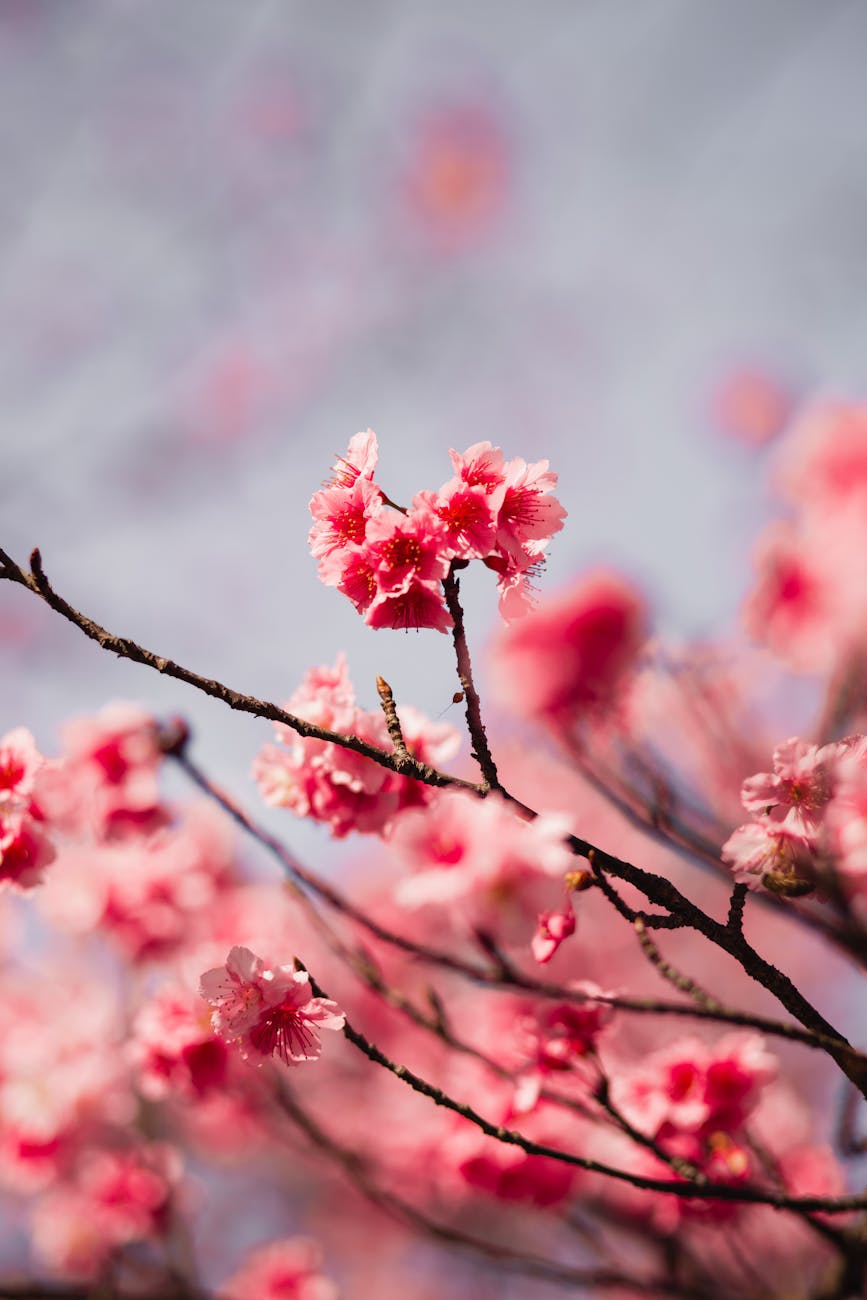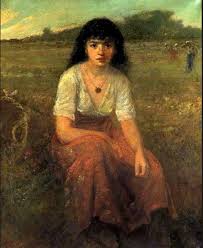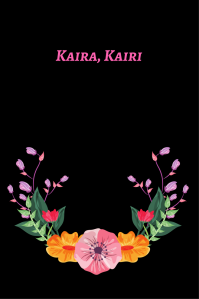 I thought at the beginning of each month, I would post a list of names associated with the that particular month. Below is a list of names I have previously written about associated with January
I thought at the beginning of each month, I would post a list of names associated with the that particular month. Below is a list of names I have previously written about associated with January
Agnes: January 21st is the feast of St. Agnes and according to folklore, on January 20th, which John Keats’ was inspired to write a poem about, unmarried girls are supposed to see a future glimpse of their husband in their dreams the night before, provided they do not eat that day.
Frost: January is often associated with cold temperatures and frosty weather. Here are some name associated with frost
Sarma, Sarmite: These 2 Latvian lovelies come directly from the Latvian word for hoarfrost. The latter is pronounced sar-MEE-teh.
Kirsi: This Finnish female name is associated with the cherry fruit but also means “frost” in Finnish.
Other names that mean “frost” or words for frost from other languages include:
Male
- Antizgar (Basque)
- Dér (Hungarian)
- Hall (Estonian)
- Reif (German)
- Rijp (Dutch)
- Rio (Manx)
- Šerkšnas (Lithuanian)
- Sioc (Gaelic)
- Szron (Polish, SHRONE)
- Barrug (Welsh)
Female
- Blancada (Occitanian)
- Brina (Italian)
- Bryma (Albanian)
- Chelata (Aragonese)
- Geada (Portuguese)
- Gelada (Catalan)
- Eláda (Guarani)
- Escarcha (Spanish)
- Jinovatka (Czech)
- Pruina (Latin)
- Salna (Latvian)
- Slana (Slovenian)
Snow: Also one of the snowiest months of the year, some names that mean “snow.”
Other names meaning snow that I have yet to write about include
Male
- Erc’h (Breton)
- Jur (Chuvash)
- Kar (Turkish)
- Lov (Erzya)
- Nix (Latin)
- Yas (Navajo)
Female
- Dëbora (Albanian)
- Fiòca (Piedmontese)
- Kavi (Faroese)
- Neige (French)
- Neva (Neapolitan)
- Neve (Galician/Italian)
- Parsla (Latvian)
Ice, the following are names that mean “ice”
Male
- Buz (Turkish)
- Izotz (Basque)
- Jég (Hungarian)
- Led (Czech, Serbo-Croatian)
- Păr (Chuvash)
- Siku (Inupiak)
- Ledas (Lithuanian)
- Ledus (Latvian)
- Tin (Navajo)
- Xeo (Galician)
- Ysbran
Female
- Cetl (Nahuatl)
- Iâ (Welsh)
- Ma’ome (Cheyenne)
Epiphany: January 6th officially marks the end of the Christmas season, when the Magi finally were able to locate the Christ child and bestow gifts upon him.
Garnet is the birthstone of January. Below is a list of words from other languages that mean “garnet” and would make awesome names
- Gernete (Anglo-Norman)
- Granate (Asturian/Basque/Spanish)
- Grenat (French)
- Gairnéad (Gaelic)
- Granato (Italian)
- Granatas (Lithuanian)
- Granada (Portuguese)
Likewise, Carnation is the birthflower, its Latin name is Dianthus, which was a name before it was a flower. Below is a list of words from other languages that mean “carnation” and would make awesome names. Also mixed in are some names with the meaning of “carnation” or just have carnation associations
- Diantha
- Clavel (Asturian/Spanish)
- Krabelin (Basque)
- Clavellina (Catalan)
- Havenellike (Danish)
- Caraveleira (Galician)
- Landnelke (German)
- Nellika (Icelandic)
- Caxtillān (Nahuatl)
- Penigan (Welsh)
And for boys, other than Dianthus, there is the Italian Garafano
The Chinese plum is the flower emblam for Spring, in Chinese it is called Meihua and its Japanese name is Ume. In Korean it is called Maesil and Vietnamese it is called Mai.
In Japan, the flower emblem for January is the Camellia.
Another January birthflower is the snowdrop
- Çeçpĕl (Chuvash)
- Sněženka (Czech)
- Perce-Neige (French)
- Endzela (Georgian)
- Bucaneve (Italian)
- Snieguole (Lithuanian)
- Śnieżyczka (Polish)
- Sněgulka (Sorbian)
- Kardelen (Turkish)
- Eirlys (Welsh)
The Zodiac signs associated with January are Capricorn and Aquarius. Capricorn means goat and Aquarius waterbearer. Some names that mean both
The ruling planet of Capricorn and Aquarius is Saturn, so Saturnina or Saturnin/Saturnino are also names to consider.
Finally, here are names that mean “January,” some come directly from words, others are a translation of the Latin male name Januarius.
Male
- Chinero (Aragonese)
- Xineru (Asturian)
- Urtarril (Basque)
- Genver (Breton/Cornish)
- Gener (Catalan)
- Kărlach (Chuvash)
- Ghjennaghju (Corsican)
- Leden (Czech)
- Znêr (Emiliano-Romagnolo)
- Janvier (French)
- Zenâr (Friulian)
- Xaneiro (Galician)
- Gennaro (Italian)
- Jenero (Ladino)
- Januarius (Latin)
- Sausis (Latvian)
- Jannar (Maltese)
- Genièr (Occitanian)
- Yenner (Pennsylviana German)
- Janeiro (Portuguese)
- Bennàlzu (Sardinian)
- Enero (Spanish)
- Ocak (Turkish)
- Lonawr (Welsh)
Female
- Jenna (Bavarian)
- January (English)
- Tammikuu (Finnish)
- Janvière (French)
- Gennara (Italian)
- Januaria (Latin)
- Zennâ (Ligurian)





 Origin: Basque
Origin: Basque Pronunciation: KYE-rah; KYE-ree
Pronunciation: KYE-rah; KYE-ree I thought at the beginning of each month, I would post a list of names associated with the that particular month. Below is a list of names I have previously written about associated with January
I thought at the beginning of each month, I would post a list of names associated with the that particular month. Below is a list of names I have previously written about associated with January To help usher in the New Year, here are some baby names that mean “new” or have some sort of association with the New Year.
To help usher in the New Year, here are some baby names that mean “new” or have some sort of association with the New Year. I thought this would be a straightforward post when I first decided to feature this name, but as I did more research, the name started to provide some interesting and complicated layers.
I thought this would be a straightforward post when I first decided to feature this name, but as I did more research, the name started to provide some interesting and complicated layers.